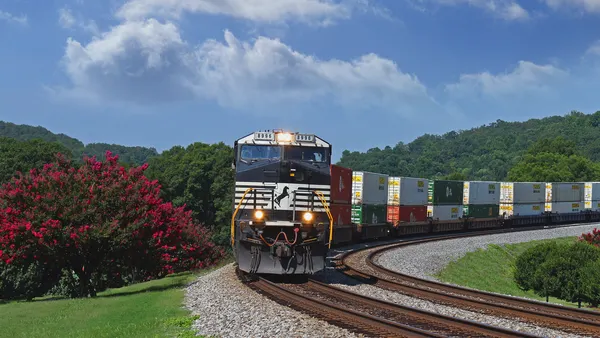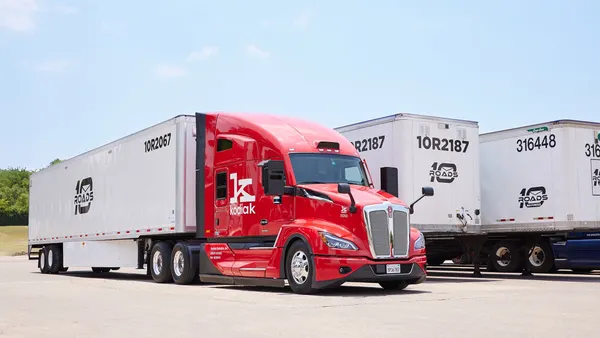Dive Brief:
- NEXT Trucking, an Uber-like startup that matches drivers with available loads, has announced an agreement this week to lease 18 acres of near the Port of Long Beach to open a drayage facility, giving it space to expand on its Relay program in Gardena, California.
- Like a relay race in which members of a team switch off to complete a task faster, all of NEXT's drayage trucks do dual transactions, meaning they drop off one container and pick up another in a single trip to the port.
- "It is a combination of virtual fleet, our yard and our marketplace so it allows us to really increase the velocity of the trades at the terminals. It allows us to haul more containers out and allow drivers to make more money," NEXT CEO Lidia Yan told Supply Chain Dive. Shippers in the Relay program have seen a 167% increase in the number of containers pulled, compared to their normal operations at the ports, and truck rivers in the pilot have seen a 20-50% increase in income, according to a press release emailed to Supply Chain Dive.
Dive Insight:
NEXT has been working with the Ports of Los Angeles and Long Beach from its 8-acre Gardena location since last year.
"During the peak season, only 20 to 40% of the drayage trucks are doing dual transactions but with our program, all our truck drivers are doing both so we help terminals be more efficient because we are hauling out more containers per truck," Yan said.
Trade uncertainty due to tariffs has exacerbated congestion and storage issues at the Port of Long Beach and the Port of LA, the nation's two largest ports handling the majority of containers going to and from Asia. Drayage delays cost the industry nearly $350 million annually, according to the press release. As the first step in the supply chain process from port to truck, a drayage slow-down can have a domino effect.
NEXT's driver pool is made up of its own proprietary fleet and drivers it contracts with through its app-based marketplace. In addition, NEXT partners with local drivers who aren't necessarily drayage certified but can still haul empty containers up to port terminals because they are going from a local yard to a warehouse and vice versa. "So with this program we are injecting additional capacity into the original drayage capacity by using local and over the road drivers to haul the second and third legs," Yan said. The startup's app-based interface reduces the time it takes for drivers to get matched with loads, which in turn reduces overall delays.
NEXT sees the ports' current traffic and capacity challenges as an opportunity to scale up the Relay program. Yan said she hopes to expand to three additional West Coast ports, yet to be announced, by the end of next year.
Correction: NEXT Trucking previously mischaracterized the nature of the relationship with the Ports of LA and Long Beach.














